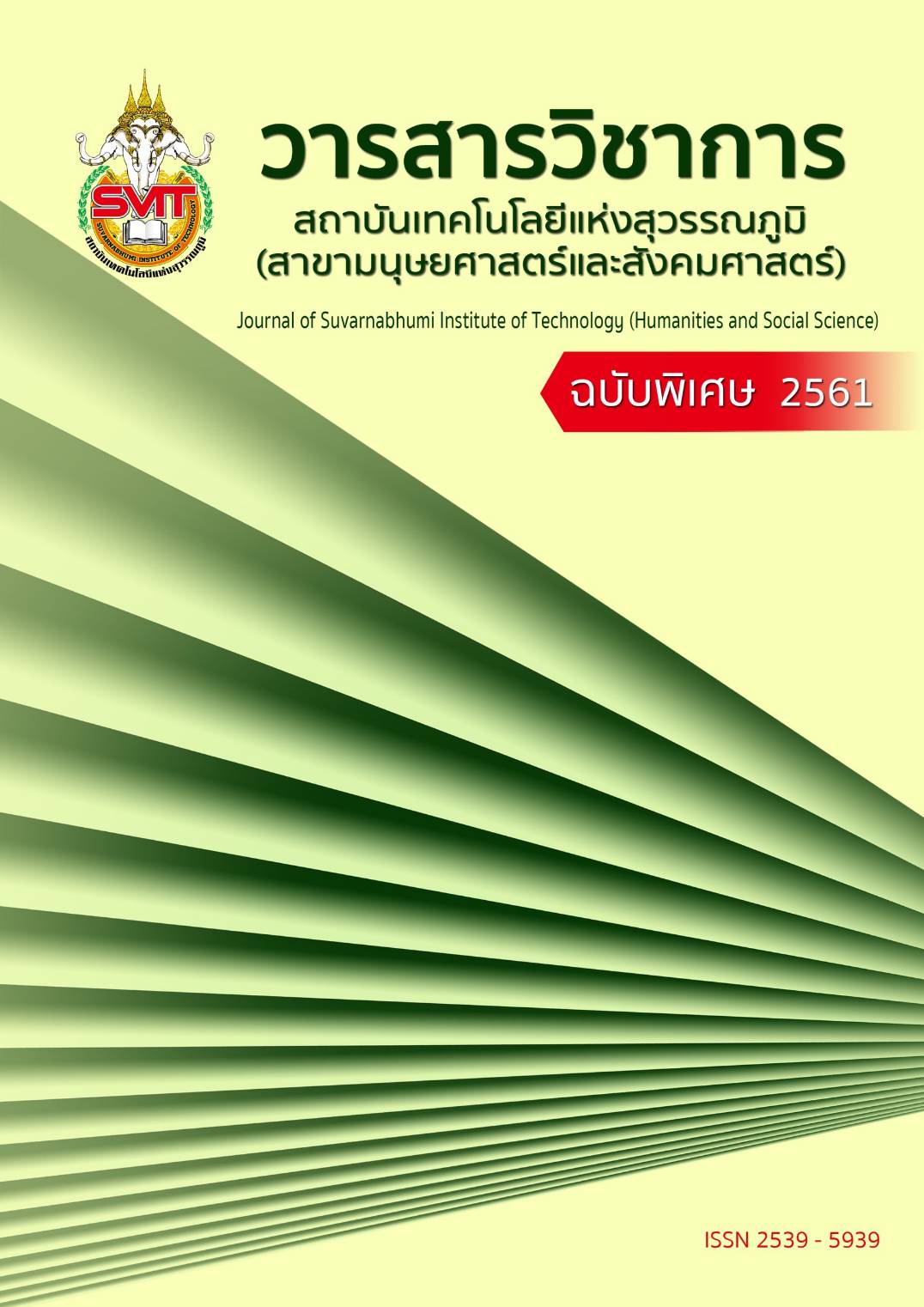THE SYNTHESIS OF THE RESEARCH PAPERS RELATED TO MASSAGE TO TREAT HEALTH PROBLEMS
Keywords:
The synthesis of the research, Massage, Health problemsAbstract
The purpose of the research was to synthesize 25 research papers related to massage to treat health problems during B.E.1997-2017, synthesized by using content analysis. The instrument used for collecting data were the research synthesis form. The synthesis of the research is summarized as follows.
Part 1 General information based on the 25 research papers founded that the majority of the research papers were publishing year 2003. The majority of the research papers were masters degree in the field of physical therapy.The majority of the institutions were Khon Kaen University (32.00 %).
Part 2 Synthesis of the information on research content founded that most of the research objectives were to study the effect of massage and to compare the effects of massage in equal numbers (96.00%). Most of the quasi-experimental research design were 92.00 percent. The independent variable focused on 36.00 percent of the Thai massage . The most common variables in the research were feeling and the degree of movement of the joints in the same number (40.00%). Most of the samples were selected by purposive sampling (60.00%). Most of the instruments were Thai massage program (60.00%). Most of them used paired t-test statistics (60.00%). The results of the research found that most of them were based on all research hypotheses (80.00%). Most massage directly affected to organs, consisted of: muscle pain (80.00%), stress reduction emotions and fatigue (28.00%). The information about massage to treat health problems found mainly in primary osteoarthritis of the knee (12.00%), following by frozen shoulder, neck pain, muscular pain (MPS), diabetes mellitus , cancer , headaches from chronic stress and migraine in the same amount 8.00%. The methods of massage found that most of them were Thai massage (36.00%), followed by applied Thai massage (12.00%). Duration of massage found that massage is one time a day (52.00%). Mostly used for massage each time for 30 minutes / time (56.00%), followed by 60 minutes / session (12.00%).
References
กรมพัฒนาการแพทย์แผนไทยและการแพทย์ทางเลือก กระทรวงสาธารณสุข.
นงลักษณ์ วิรัชชัย. (2542). การวิเคราะห์อภิมาน META-ANALYSIS. กรุงเทพฯ : จุฬาลงกรณ์มหาวิทยาลัย.
เรณู มีชนะ. (2544). เปรียบเทียบผลการนวดไทยประยุกต์กับการใช้ยาพาราเซตามอล ในบุคคลที่มีอาการปวดศีรษะเนื่องจากความเครียด สาขาวิชาพยาบาลสาธารณสุข มหาวิทยาลัยมหิดล.
รัตนา ทรัพย์บำเรอ. (2559). ระเบียบวิธีวิจัยทางสาธารณสุข. พิมพ์ครั้งที่ 1. กรุงเทพฯ: สำนักพิมพ์โอเดียนสโตร์.
ลดาวัลย์ นิชโรจน์ และคณะ. (2540). ที่ศึกษาเกี่ยวกับการนวดกดจุดฝ่าเท้าต่อความเครียดและความดันโลหิตสูงในผู้ป่วยโรคความดันโลหิตสูงไม่ทราบสาเหตุ สถาบันประสาทวิทยา. ภาควิชาพยาบาลศาสตร์ คณะแพทย์ศาสตร์ โรงพยาบาลรามาธิบดี มหาวิทยาลัยมหิดล.
วาทินี ศรีไทย. (2548). ผลของการจัดการกับอาการร่วมกับการนวดแผนไทยต่อความเหนื่อยล้าของผู้ป่วยไตวายเรื้อรังระยะสุดท้ายที่ได้รับการฟอกเลือดด้วยเครื่องไตเทียม. พยาบาลศาสตรมหาบัณฑิต, สาขาการพยาบาลศาสตร์ จุฬาลงกรณ์มหาวิทยาลัย.
อุทัย โสธนะพันธุ์.( 2561). กลไกการออกฤทธิ์ของสุคนธบำบัดต่อระบบประสาทส่วนกลาง.บทความฟื้นฟูวิชาการออนไลน์สำหรับการศึกษาต่อเนื่องทางเภสัชศาสตร์. ภาควิชาเภสัชเวท. คณะเภสัชศาสตร์.มหาวิทยาลัยศิลปากร.
Jacob, M. (1960). Massage for the relief of pain: Anatomical Physiological Considerations. the Physical Therapy Review, 40: 95-105.
White, J.A. (1988, May). Touch with Intent: Therapeutic Massage. Holistic Nursing Practice.2: 63-67.
Salvo, S.G. (2003). “ Massage Physiology : Effects, Indications, Contraindications and Endangerment Sites,” in Massage Therapy Principles and Practice. 2 nd ed. United State of America : Elsevier Science, .
Downloads
Published
Issue
Section
License
The articles published are copyrighted by the Sarasas Journal of Humanities and Social Science. The opinions expressed in each article in this academic journal are those of the individual authors and do not reflect the views of Sarasas Suvarnabhumi Institute of Technology. The authors are solely responsible for all aspects of their respective articles. Any errors or inaccuracies in the articles are the sole responsibility of the authors.



